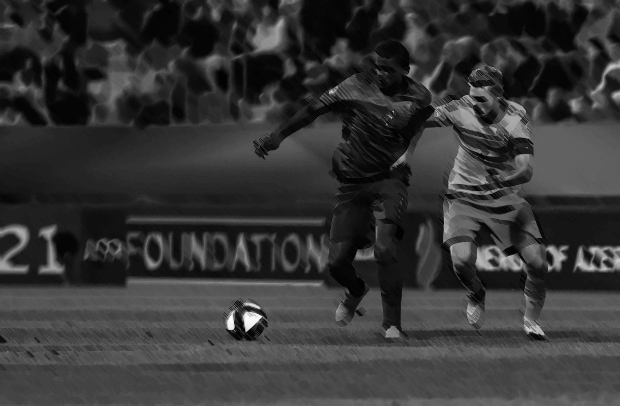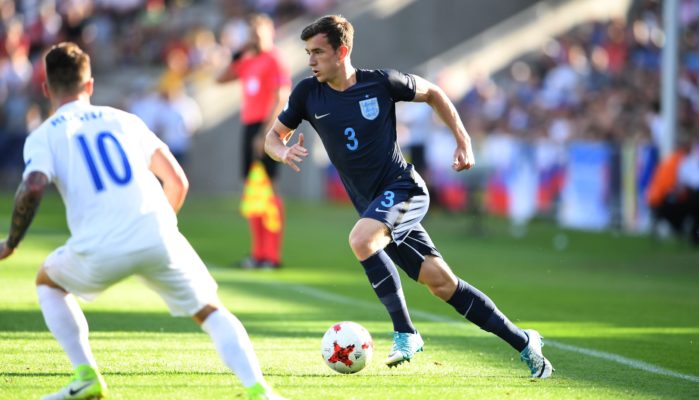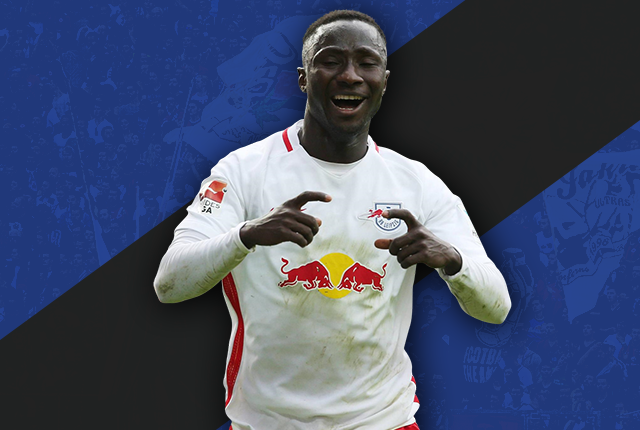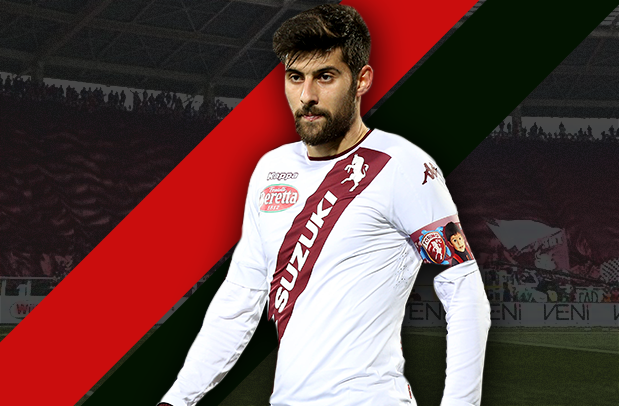The U-21 European Championship has always been an ideal resource for football enthusiasts to witness some of the best upcoming talent in the beautiful game. Group B had similar level of excitement with some powerhouses of the footballing world attempting to stamp their authority in the U-21 scene. But with both Italy and England disappointing viewers, it was Portugal and Sweden who emerged as the stand-out perfomers. Mark Ooi has a look at the 5 individuals who most impressed in the opening round from Group B.
Davide Zappacosta
Though Davide Zappacosta has not been high on the scoring or assist charts, he has been an impressive performer for Italy. The Atalanta right back has been solid in defence but, more importantly in the age of the modern fullback, he has been excellent going forward. Zappacosta is of a good build for a fullback, standing at 1.82m. He has the discipline to get forward without neglecting his defensive duties, as well as the pace to aid him in getting back into his defensive position. Zappacosta provided the cross for Marco Benassi’s headed goal against England.
In attack, Zappacosta has linked up well with the Azzurri star man Domenico Berardi. With Berardi frequently looking to drift infield onto his favoured left foot, Zappacosta’s well-timed overlapping runs from deep maintained Italy’s width. These overlapping runs also gave his team-mates the option of playing through passes toward the byeline, with the aim of catching opposition defences off guard in tracking Zappacosta’s movements. With an 86% passing accuracy on WhoScored, Zappacosta has shown to be proficient at keeping possession of the ball. When it comes to keeping the ball outside of passing, Zappacosta’s adventurous style of play counts against him – being robbed of the ball 1.3 times per match placing him as the fullback that has been dispossessed the most number of times on average in Group B.
That said, Zappacosta has had far more positives than negatives across Italy’s stay in the U21 Euros. He looks to have a long-term future with Italy at senior international level.
Marco Benassi
Marco Benassi started the tournament on the bench but started Italy’s 2nd and 3rd matches. Lorenzo Crisetig anchored the midfield whilst Benassi pushed forward from midfield to add to Italy’s play in the final third. An average of 3 shots per game placed Benassi second only to Harry Kane. A 79.8% passing accuracy is not the most impressive but is not awful either, and is supplemented by the fact that Benassi constantly tried to be adventurous in moving the ball. After all, attempting risky forward passes might not be good for one’s passing statistics, but they do add more drive to a team’s forward play. Benassi played 0.5 through balls per game, ranking him joint-2nd across all players in the group stage.
Against England in the last group stage matchday, Benassi put in an impressive display, scoring twice as Italy won 1-3. Benassi has not been outstanding in any one aspect of his game. Rather, he has been a well-rounded performer that brought greater fluency and dynamism to the Azzurri midfield. Italy’s performances noticeably improved after the likes of Benassi and Crisetig were into Luigi Di Biagio’s starting XI.
William Carvalho | Full Scout Report
William Carvalho is a player who has been in the transfer spotlight for the past few years, ever since his breakthrough season at Sporting CP. His performances in Portugal’s matches so far have only added to the hype and certainly boosted his transfer value. Despite his young age, William already plays with an air of maturity. His composure on the ball, even in tight situations, allies itself with his forceful physicality and proficient technical skill set. Operating at the base of Portugal’s midfield diamond, William plays a pivotal role in Portugal’s dominance in midfield – recycling ball possession (86.3% passing accuracy), being a dominant presence in midfield as well as being able to play more adventurous forward passes (10.3 long balls per game) when given the chance. The Sporting midfielder has been at the centre of Portugal’s play, with his 77.7 average passes per game being 14 higher than the next closest player, his captain Sérgio Oliveira.
Much like Bernardo Silva, William Carvalho had his standout group stage performance against England. England had no answer to William Carvalho as he asserted himself in the middle of the park and ensured that Portugal had the upper hand in midfield. William Carvalho is clearly one of the premium midfielders in the U21 Euros and his performances in Group B have certainly been impressive.
Sérgio Oliveira
Sérgio Oliveira has been one of the best central midfielders in the tournament so far. Having come through the FC Porto academy, it is of no surprise that the Portugal U21 captain is highly proficient with regard to his technical ability on the ball – an 85.3% average passing accuracy attests to that. Oliveira has been at the hub of Portugal’s game, with his 63.7 average passes per match being second to only William Carvalho. At 1.81m, Oliveira is of a decent size for a central midfielder.
The Portugal No 8 has linked well with his team-mates, for example whenever Raphaël Guerreiro pushes forward from left back. Oliveira always makes himself available to receive a pass to keep a move going or to be an “out ball” in case a team-mate is in trouble. As one of the two box-to-box midfielders in Portugal’s midfield diamond, Sérgio Oliveira’s discipline allows his counterpart João Mário to be more adventurous, giving the Sporting man greater license to get forward from central midfield. Whilst João Mário has been more adventurous in his forward runs, Oliveira’s offensive edge comes from his passing ability and vision, being able to play incisive forward passes to the likes of Bernardo Silva and Ivan Cavaleiro. At the time of writing, Sérgio Oliveira has played the most number of key passes – 11 – in the tournament. Despite being disciplined defensively, Oliveira has shown to have the intelligence to time his runs well, getting to the edge of the box for cutbacks from his team-mates.
The Portugal No 8 gives his team a balance in midfield and, in tandem with William Carvalho, has been a key reason to Portugal being dominant and winning the midfield battle in their matches in the group stage.
Bernardo Silva | Full Scout Report
Silva is a gifted dribbler and completed more dribbles than any other player – 21 – in the group stage. With his guile and wand-like left foot, the Monaco playmaker has been the conductor of Portugal’s attack. Portugal’s No 10, in his free role, drifts around the final third, looking for spaces between the lines to receive the ball before dribbling past his marker or playing an incisive pass to the forwards. The way that Bernardo Silva glides around the field bears an uncanny resemblance to his Spanish namesake, David Silva.
Bernardo Silva’s standout performance in Group B would be against England in Portugal’s opening match. Silva was clearly one of the two best players – William Carvalho being the other – on the pitch. It was a mesmeric display from Bernardo Silva.
Though he has not been amongst the goals and assists charts so far, Portugal would not be where they are without Bernardo Silva. He might not have the most impressive goal-assist stats thus far. However, Bernardo Silva has been the chief facilitator of Portugal’s attack, much like Jorge Valdivia has been for Chile in the ongoing Copa America.
Head this way for more reading on the U21 European Championship.
- Scout Report: Thomas Lemar | AS Monaco’s playmaking maestro - June 5, 2017
- The Academy Series | 10 best Sevilla products: Sergio Ramos, Marchena, and Jesus Navas feature - March 25, 2017
- Newcastle United: All aboard the Rafalution - August 8, 2016
























































